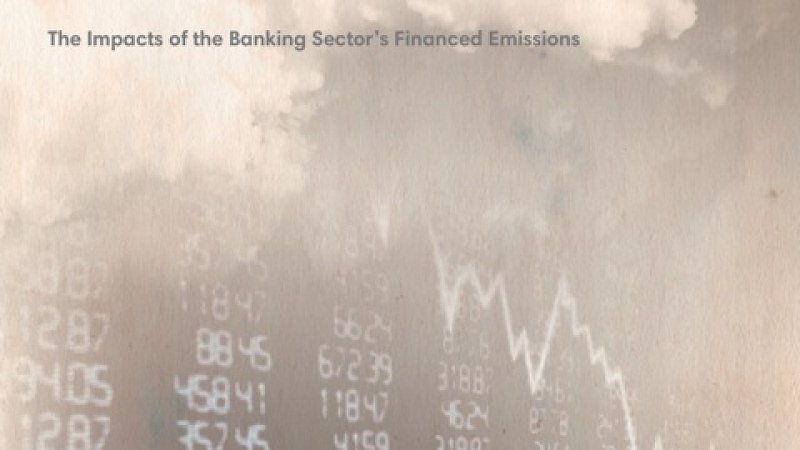Bankrolling Climate Disruption

Rising concentrations of greenhouse gases in the atmosphere have begun to disrupt the global climate, triggering extreme weather events around the globe in recent years. To address this growing climate crisis, the global economy must rapidly transition to low-carbon energy sources. This transition poses major challenges for the banking sector, which will need to shift its financing from fossil fuel-based power sources to low-carbon energy infrastructure.
To date, the banking sector has accelerated climate change through its "financed emissions," the greenhouse gas emissions induced by bank loans, investments, and financial services. The Rainforest Action Network report, "Bankrolling Climate Disruption: the Impacts of the Banking Sector's Financed Emissions", analyzes the climate impacts of these emissions and the risks they pose for banks.
The growing climate, reputational, and financial risks from the emissions footprints of bank financing portfolios make it imperative for banks to measure and reduce their financed emissions:
- Time is running out for banks to finance the transition to a low-carbon economy - By the end of the decade, locked-in emissions from new infrastructure will make it impossible to limit global greenhouse gas concentrations to safe levels, making it imperative for banks to begin to reduce the carbon footprints of their financing portfolios.
- The risks involved with financing carbon-intensive companies are growing - The financed emissions footprints of banks leave them vulnerable to reputational risks from a climate-aware public and to financial risks from financing relationships with companies that will struggle to compete in a carbon-constrained economy.
- Banks have made environmental financing commitments, but have failed to measure their climate impacts - Major U.S. banks have committed over $100 billion to green financing initiatives, but have failed to measure whether these commitments have significantly reduced their portfolio-wide climate impacts.
The report concludes by recommending actions banks can take to join their public sector counterparts in setting financed emissions reduction targets.
Read more: Download the report here.
